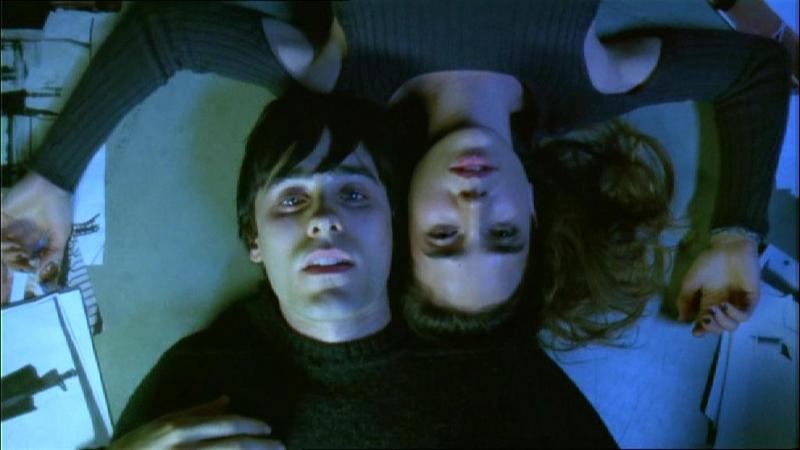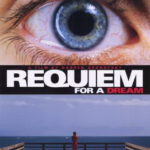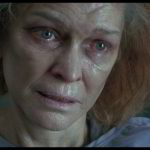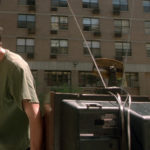Requiem For A Dream is a film with a moral message about addiction, specifically about the effect of a range of drugs, from high to hell as people you recognise as eccentric if delusional and verging on the criminal visibly crumble before your eyes. Call it Trainspotting with the camaraderie but without the laughs.
The obvious hells portrayed are self-inflicted: by Jared Leto‘s Harry Goldfarb, his girl Marion Silver (Jennifer Connolly) and his friend Tyone (Marlon Wayans) initial joy at being addicted to smack, until their money-making schemes, starting by pawning his mother’s TV) start going wrong and become seriously dangerous.
Then it becomes a case of doing whatever it takes to fees their addictions and to stave off the crawling flesh of cold turkey. A different fate befalls each anti-hero, but all equally nightmarish and deserving of the 18 certificate awarded. This is not the stuff to watch if you have a weak stomach, particularly the kaleidoscopic fast cut compilation very near the end.
However, this narrative thread contrasts sharply with the “acceptable face” of junkiedom as Harry’s lonely widowed mother Sara, played with remarkable intensity by the wonderful Ellen Burstyn – entirely admirable in a performance though at times she is very difficult to watch. It reminds me strongly of the Rolling Stones‘ song Mother’s Little Helper, which in its own quiet way is equally disturbing. It’s a surprise this was not included in the soundtrack.
Sara longs to appear on her favourite self-help TV show In her favourite red dress, which no longer fits. Dieting to fit the dress does not satisfy her sugar cravings so she takes a friend’s tip to go to a “doctor” who puts her on a regime of amphetamines. The effectiveness is short-lived and amphetamine psychosis follows, compete with paranoid hallucinations including her own alter ego and a fridge that bites back. Many of the most nightmarish sequences follow a bewigged and red-dressed smiling Sara on to the TV show where she proudly lauds her son – putting her flaking reality with grey hair, wrinkled face and into sharp relief.
Where the younger generation suffer the horrors of prison, prostitution (and a gang bang in which Marion is the enforced victim to get her hit) and amputation (due to a horribly gangrenous arm), Sara’s fate is ECT. Which is worst? Whichever you choose, the narrative tells you clearly that no fate is going to improve your life, just in case you didn’t pick up the message: don’t be lured by the initial high, since it always becomes a nightmare.
But is Darren Aronofsky‘s film based on Hubert Selby‘s book (scripted by both) either judgemental or exploitative? The former certainly, the latter we can debate. Neither is it prescriptive about what those trapped in the nightmare should do about their predicament – the best solution is not to get sucked or suckered in in the first place.
For all the gripping performances, the lure of a well-made film, the delicious soundtrack and horrific finale, I can’t help feeling that Requiem For A Dream is a minor film, a one-note movie lacking in the sophistication to provide a bigger picture on drugs and their impact, what is or can be done, what support there is to combat loneliness. It could have gone further, which is maybe why Trainspotting got the greater audiences.









